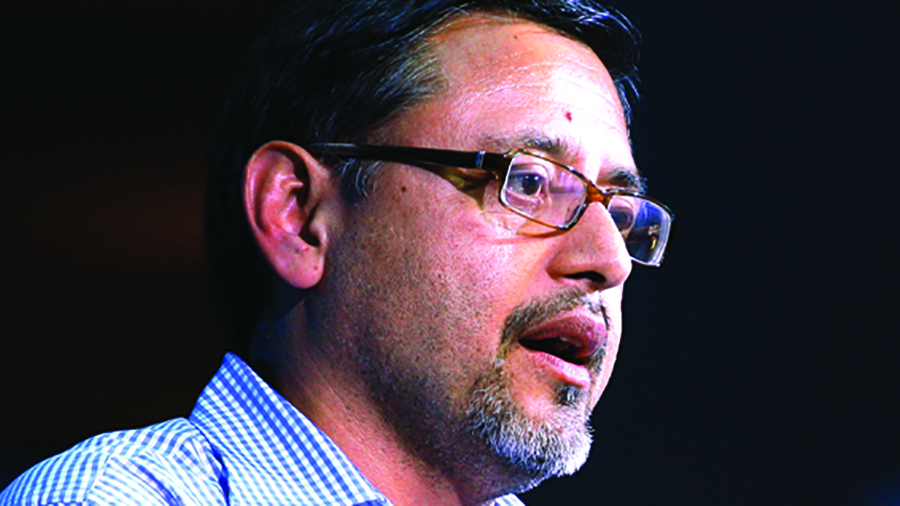Noel Castellanos, CEO of the Christian Community Development Association (CCDA), knows about ministry to underserved communities, having served for more than 30 years in urban Latino neighborhoods. In Where the Cross Meets the Street: What Happens to the Neighborhood When God Is at the Center (InterVarsity Press), Castellanos shows how ministries can address inequality and injustice without forsaking evangelism and discipleship. David Swanson, pastor of Chicago’s New Community Covenant Church, spoke with Castellanos about forging faith and community at society’s margins.
You write, “We can no longer maintain our old paradigms of ministry that compartmentalize and truncate the work of the kingdom.” How does this principle guide your work?
In most evangelical churches, evangelism and discipleship are the bread and butter. But to bring the full gospel to poor and marginalized communities, we need further tools.
CCDA’s biblical framework begins from a foundation of proclamation and formation. But from my experience in urban and Latino communities, I learned that we needed to put compassion front and center. Compassion is a language Christians can understand in our hurting world: the need for a cup of water, clothing, shelter, or some other practical form of love.
We want to help create economic opportunity—to teach people how to fish, and even to own the pond. We want to restore dignity by restoring the ability to care for oneself and one’s family.
As I got involved with the struggle for immigration reform in the United States, I realized that confronting injustice would be essential.
Where can churches look for examples of putting the full gospel into action?
Think of the black church and the way leaders like Martin Luther King Jr. read the Bible from a different perspective, giving new meaning to words like liberation and reconciliation. The black church’s mobilization and involvement in justice work has influenced the Latino community as we have begun to mobilize on issues of immigration and poverty. I hope we can learn from the black church’s experience without losing our fervor for evangelism.
What happens when the cross meets the suburban, middle-class street?
Everywhere you go, you find hurting people. You have to get beyond the gated community and move toward the margins.
When I worked with Young Life, I once ministered at a high school in a wealthy part of Spokane, Washington. The school had an influx of Laotian refugees. You could see from the way they were treated that these kids were outcasts. Because of my own upbringing as an outsider, I saw that I had to reach out.
At Young Life we talked about incarnational ministry. It meant entering the world of young people relationally. The more I’ve reflected on Scripture, the ministry of Jesus, and the radical idea of God coming to earth in human flesh, the more I’ve realized that effective ministry must be incarnational.
We often think of racial reconciliation as a black–white issue. As someone who is neither, how do you approach this?
When I arrived at CCDA, black-and-white was definitely the assumed way of framing reconciliation. At the first meeting I attended on reconciliation, there was one other Latino person. And my experience with Young Life, as the first full-time Latino staff member, was similar. But it’s not enough to be upset; you have to step up and lead in order to create change. We’re committed to including Native Americans, Asians, and others who have been on the margins.
Are you optimistic about immigration reform in the United States?
I feel hopeful—but discouraged about the pace. I’m encouraged when I think of how long it took the abolitionist movement to succeed. Whether change happens is outside my control, but I can’t sit on the sideline saying that reform is too hard or taking too long.
I sometimes fear, though, that it’s easier to protest or write a senator than to invest time in redeveloping a neighborhood. While we’re working to make changes in Washington, we have to keep doing the work of loving our neighbor.











